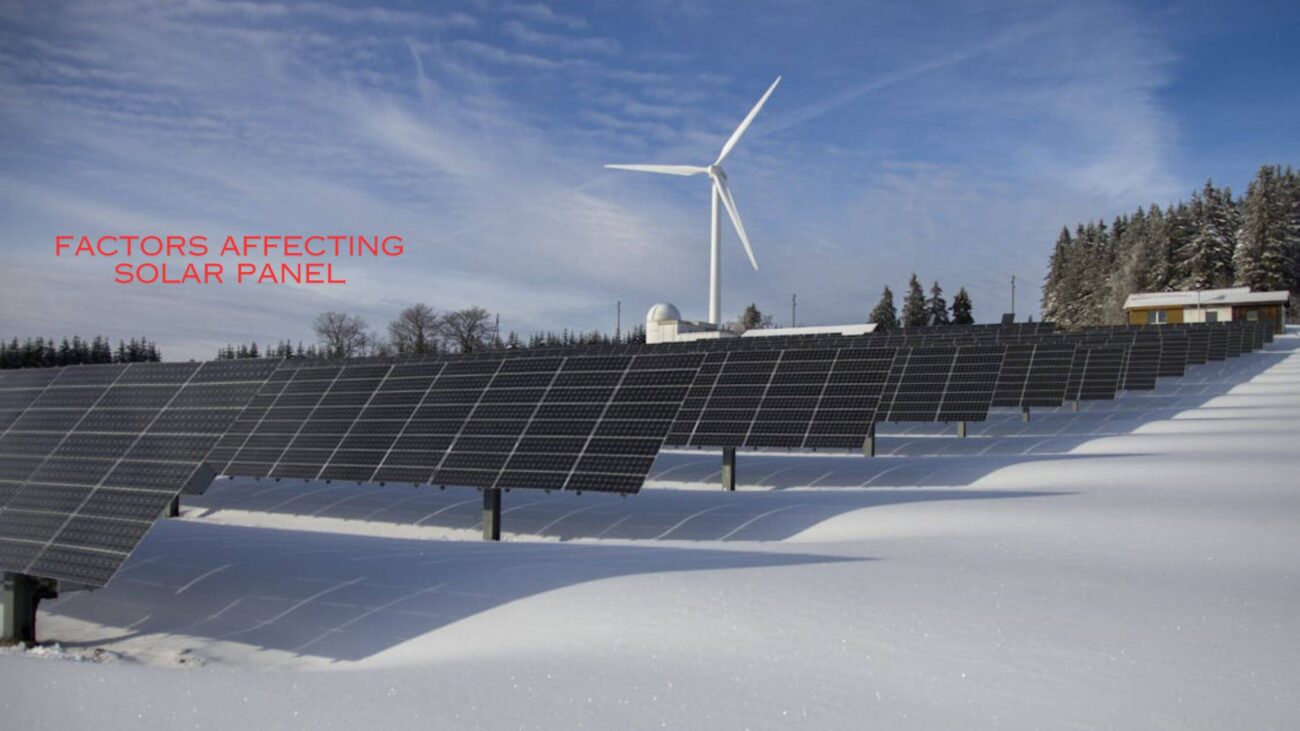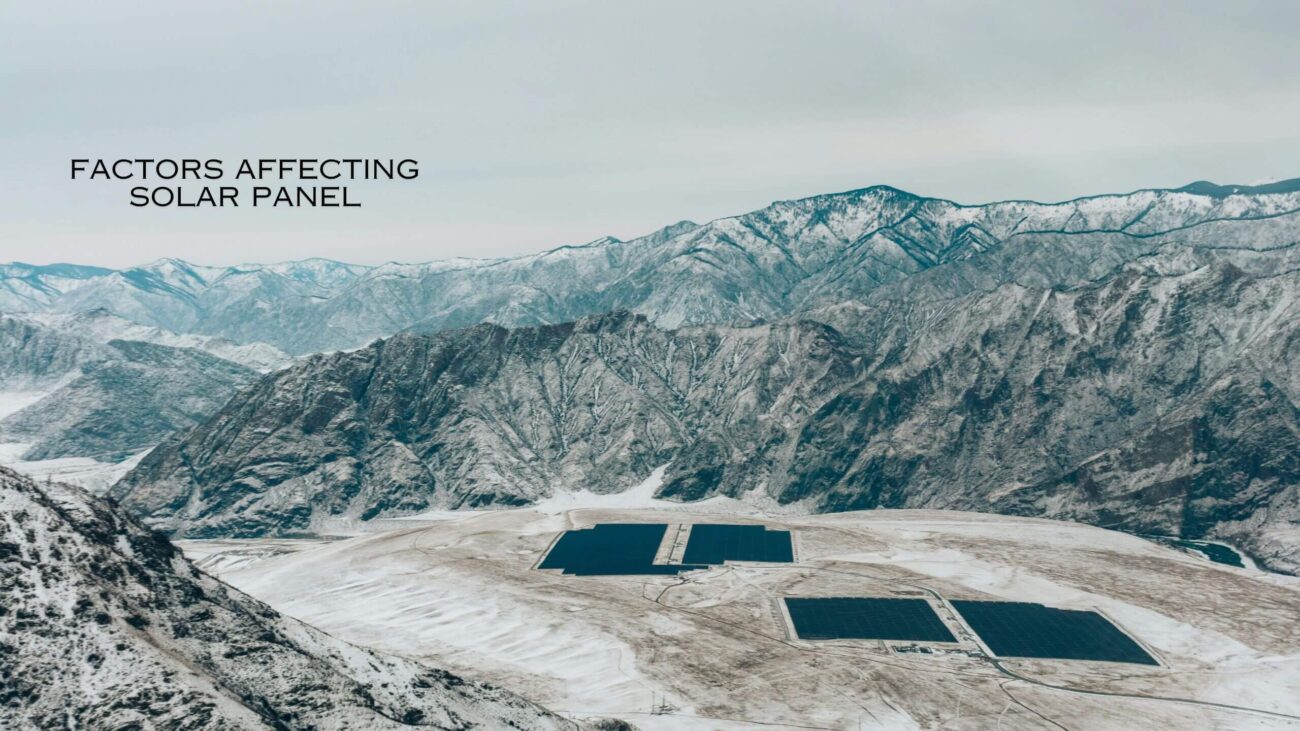In the realm of renewable energy, solar panels stand as beacons of sustainability, promising clean and efficient power generation. However, a common query arises: Do solar panels perform adequately in cold weather conditions? Let’s delve into this topic to uncover the truths behind Explain Efficiency of Solar Panels in Cold Weather efficiency during chilly climates.
In This Post
Understanding Solar Panel Functionality
Before delving into Explain Efficiency of Solar Panels in Cold Weather performance, it’s imperative to grasp the fundamental workings of solar panels. These photovoltaic devices harness sunlight and convert it into electricity through the photovoltaic effect, where sunlight excites electrons in silicon cells, generating a flow of electric current.
Debunking the Solar Panels in Cold Weather Myth
Contrary to popular belief, solar panels can indeed operate efficiently Solar Panels in Cold Weather. While it’s true that solar energy production increases with temperature, the efficiency of solar panels actually improves in cooler climates. Cold temperatures reduce resistance within the panels, enhancing electron flow and overall performance.
Factors Affecting Solar Panel Performance in Cold Weather
Explain Efficiency of Solar Panels in Cold Weather are renowned for their ability to harness sunlight and convert it into electricity, but their efficiency can be influenced by various factors, especially in cold weather conditions. Understanding these factors is crucial for optimizing solar panel performance in colder climates.

Sunlight Intensity
Sunlight intensity plays a pivotal role in determining solar panel efficiency, even Solar Panels in Cold Weather. Despite the lower temperatures, clear, sunny days in cold climates can still provide substantial energy for solar panels to generate electricity effectively. The intensity of sunlight directly impacts the amount of energy absorbed by solar panels, making it a critical factor for maximizing performance.
Angle of Incidence
The angle of incidence, or the angle at which sunlight hits the solar panels, significantly affects energy absorption. In colder regions, where the sun’s position in the sky may vary, adjusting the angle of solar panels becomes crucial to capture maximum sunlight. By optimizing the angle of incidence, solar panels can maximize energy production, ensuring optimal performance even in cold weather conditions.
Snow Accumulation
One of the challenges faced by Explain Efficiency of Solar Panels in Cold Weather is snow accumulation. A layer of snow on solar panels can temporarily obstruct sunlight, reducing energy production. However, modern solar panel designs incorporate tilt mechanisms that help mitigate this issue. Angled solar panels facilitate the sliding of snow, preventing accumulation and maintaining efficiency. Additionally, advancements in technology have led to the development of snow-resistant coatings, further enhancing performance in cold weather.
Panel Material and Design
The material and design of solar panels also impact their performance in cold weather. Certain materials may be more resilient to extreme temperatures, ensuring consistent performance even in freezing conditions. Moreover, the design of solar panels, including their size, shape, and mounting systems, can affect their ability to withstand cold weather and optimize energy absorption.
Temperature Coefficients
Temperature coefficients are another crucial factor influencing solar panel performance in cold weather. Temperature coefficients indicate how much Solar Panels in Cold Weather efficiency decreases as temperatures drop. Panels with lower temperature coefficients are more resilient to temperature fluctuations, maintaining higher efficiency levels in cold weather.
Maintenance and Cleaning
Regular maintenance and cleaning are essential for ensuring optimal solar panel performance in cold weather. Removing snow, debris, and dirt from solar panels helps maximize sunlight exposure and energy absorption. Additionally, inspecting panels for damage and addressing any issues promptly can prevent efficiency losses and prolong the lifespan of solar panel systems.

Maximizing Solar Panel Efficiency in Cold Weather
To ensure optimal solar panel performance during Solar Panels in Cold Weather conditions, consider the following strategies:
- Regular Maintenance: Keep solar panels clean and free of debris to maximize sunlight absorption.
- Tilt Adjustment: Adjust the tilt angle of solar panels seasonally to optimize sunlight capture, especially during winter months.
- Snow Removal: Safely remove snow accumulation from solar panels using soft brushes or solar panel-specific snow removal tools.
Conclusion
In conclusion, solar panels are indeed effective Explain Efficiency of Solar Panels in Cold Weather conditions, with their efficiency optimized through proper maintenance and adjustment. By understanding the factors influencing solar panel performance in cold climates and implementing appropriate strategies, individuals and businesses can harness renewable energy even in chilly environments.
Are solar panels effective in cold climates?
Solar panels remain effective in cold climates, although their efficiency may vary. Cold temperatures can improve conductivity, enhancing performance, but excessive cold may reduce output. Proper maintenance and snow removal strategies can optimize efficiency in chilly conditions.
How do I prevent snow buildup on solar panels?
To prevent snow buildup on solar panels, consider installing panels at a steeper angle or investing in heating systems. Regularly clearing snow with a soft brush can also help maintain efficiency. Additionally, installing anti-reflective coatings or using dark-colored panels can aid in snow melting.
Can extreme cold damage solar panels?
Extreme cold can potentially damage solar panels due to temperature fluctuations, but most panels are designed to withstand such conditions. However, it’s essential to consider factors like the panel’s quality, installation, and maintenance to minimize any risk of damage during harsh cold weather. Regular inspections can help identify and address any issues promptly.
What are the benefits of solar tracking systems?
Solar tracking systems offer several benefits, including:
1.Increased energy production: By automatically adjusting the angle of solar panels to face the sun throughout the day, tracking systems maximize sunlight exposure, leading to higher energy generation.
2.Enhanced efficiency: Optimal alignment with the sun’s position ensures that solar panels operate at peak efficiency, making the most of available sunlight.
3.Improved ROI: Despite higher initial costs, solar tracking systems can deliver a better return on investment over time by generating more electricity compared to fixed-tilt systems.
4.Reduced land footprint: Because tracking systems generate more power per unit of land area, they can help conserve space, making them suitable for installations where space is limited.
5.Versatility: Solar tracking systems can be customized to suit various geographic locations and project requirements, offering flexibility in design and installation.
Overall, solar tracking systems offer a compelling solution for maximizing energy output and optimizing the performance of solar photovoltaic installations.
How often should I inspect my solar panels?
It’s advisable to inspect your solar panels regularly. Generally, experts recommend inspecting them at least once or twice a year. However, the frequency may vary based on factors such as weather conditions, system age, and location. Regular inspections help ensure optimal performance and early detection of any issues that may arise.
